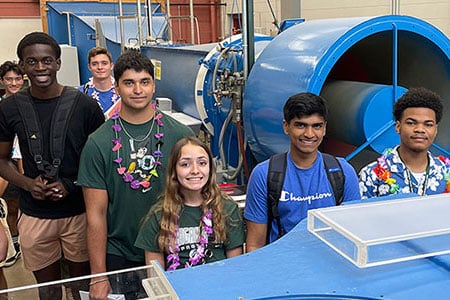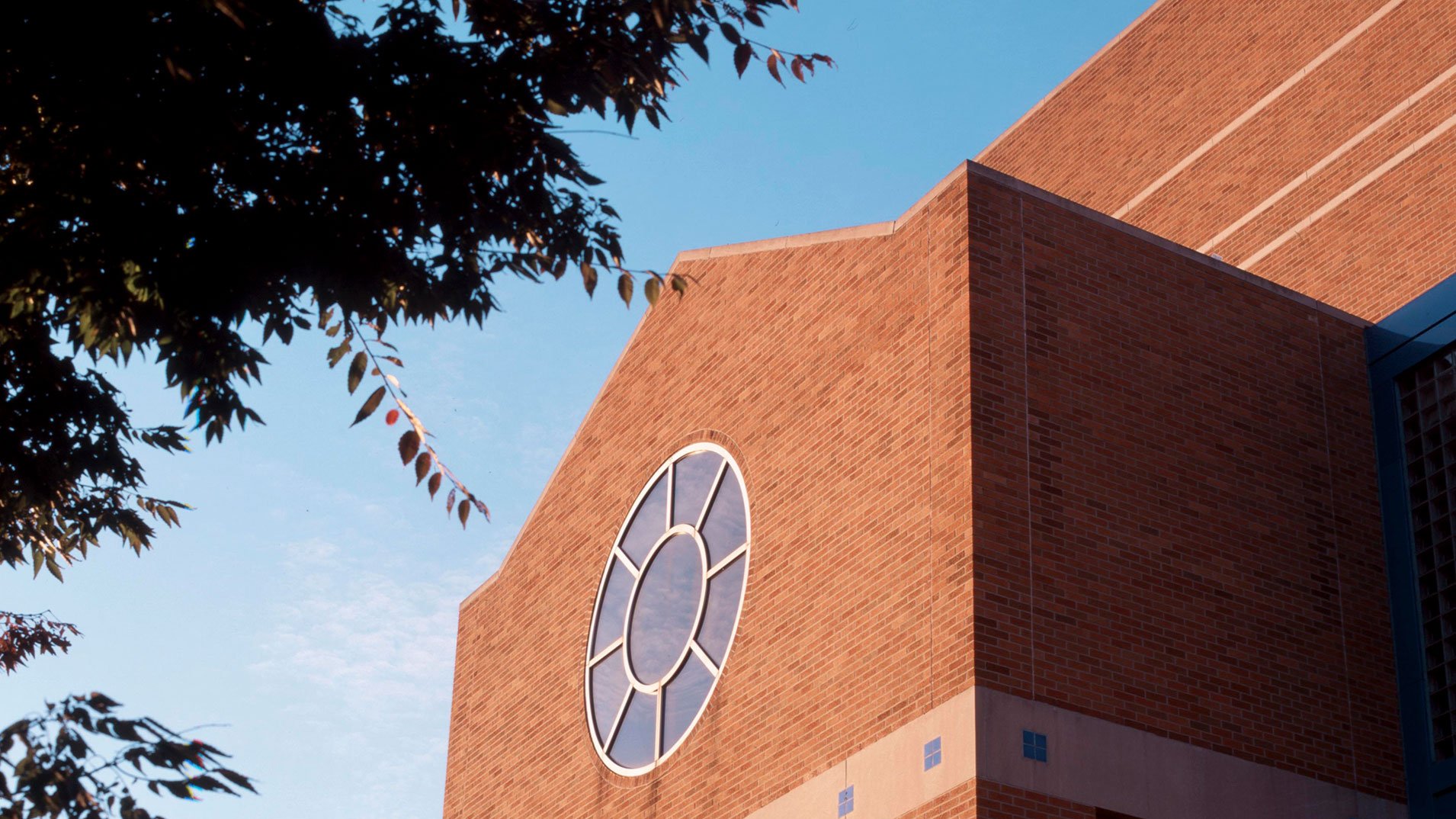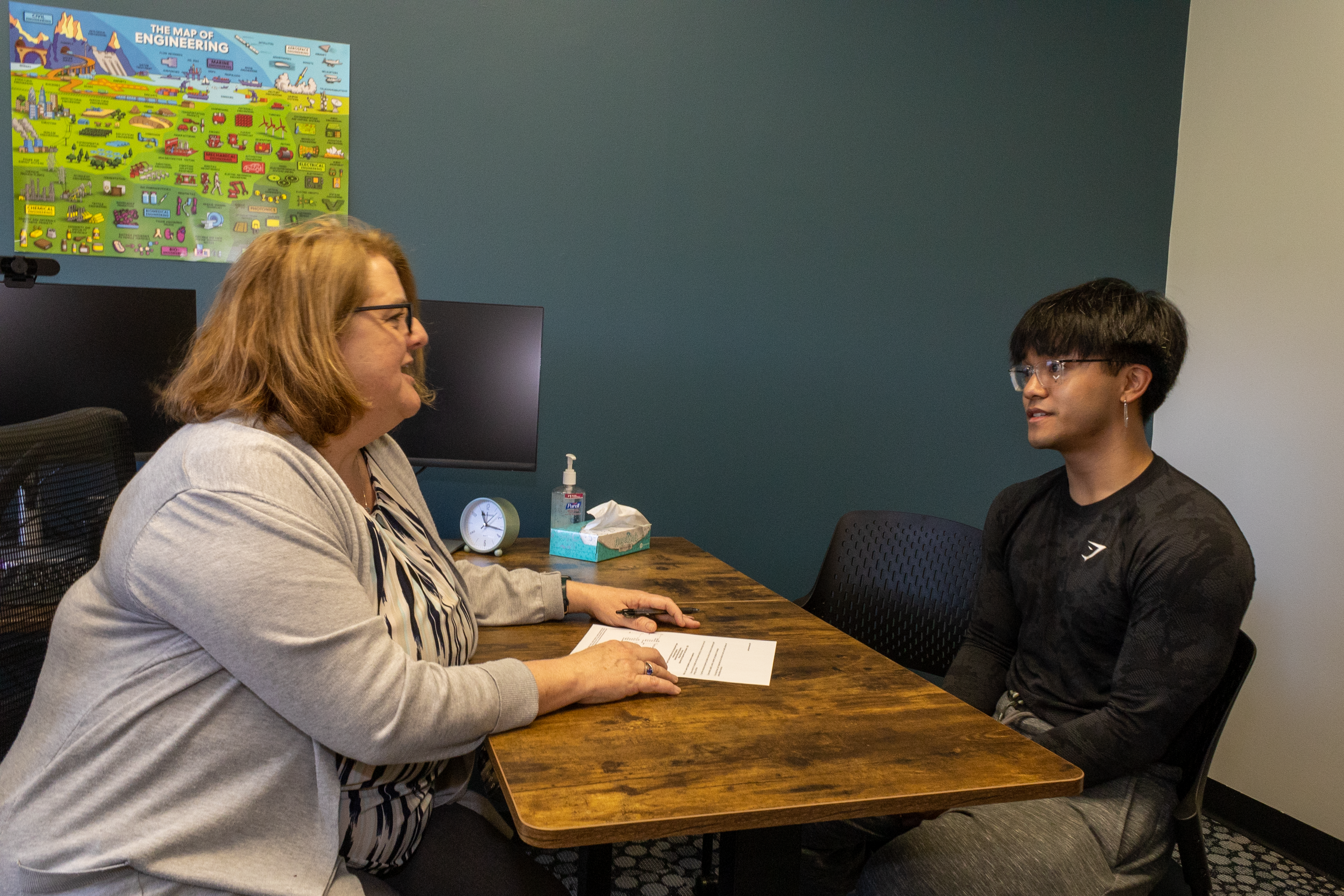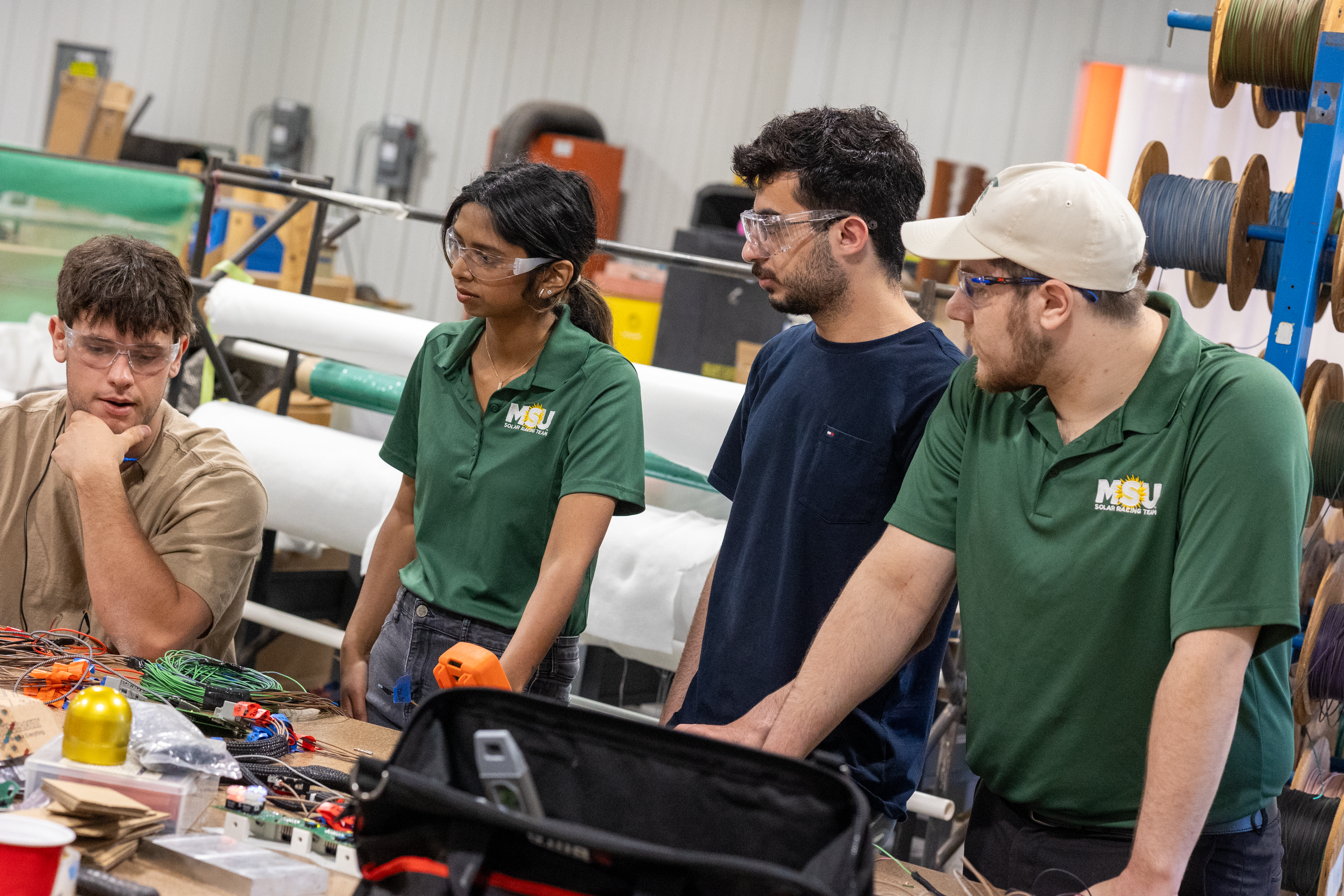Xuefei Huang, the MSU biomedical engineering and chemistry researcher featured in this story, was honored April 2 at the university's Innovation Celebration. He was one of five faculty members, current students and alumni with College of Engineering ties who received awards at the event. Huang received the Technology Transfer Achievement Award. For more on his honor and other Spartan Engineers who received awards, check out the Innovation Center's event program and the College of Engineering's awards story.
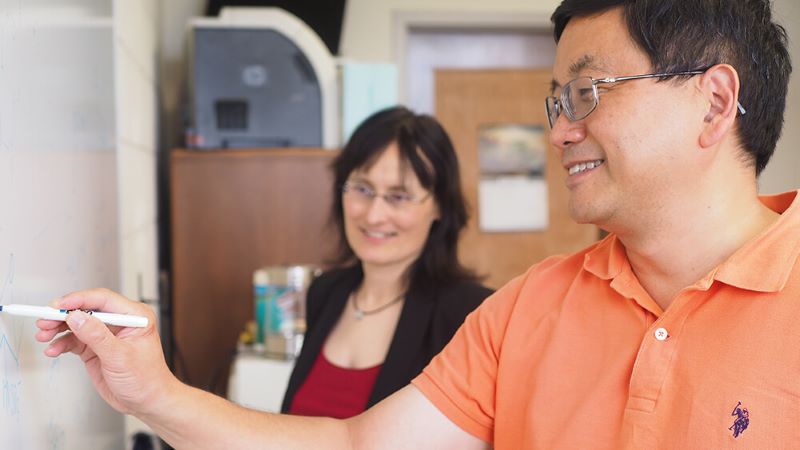
It’s not that Xuefei Huang of Michigan State University doesn’t have a sweet gig. After all, he’s a professor of chemistry and biomedical engineering who studies sugars.
It’s just a lot more complicated than most people realize.
“Carbohydrates — complex sugars also known as glycans — are everywhere,” says Huang, who works in the Institute for Quantitative Health Science & Engineering, or IQ, at MSU.
“They’re in food, wood, our clothing,” Huang continues. “They’re also on the surface of human cells and bacterial cells. Even viruses, including the coronavirus, have glycans on their surface.”
At the molecular level, glycans are often the first point of contact between our bodies and unwelcome guests, including cancer cells.
“Cancer cells have sugars on their surface that reduce immune interactions,” Huang says. “If they didn’t have those, cancer wouldn't be cancer. Our immune systems would take care of it.”
Glycans made by cells don’t get the publicity of other biomolecules like DNA and proteins.
Still, these carbohydrates are critical components of myriad biological processes and, as such, could contain undiscovered functions that could help treat cancer, brain disease and many other conditions.
So sugar doesn’t just help the medicine go down; sugar can be the medicine.
For the full story from Matt Davenport, visit the College of Natural Science website.